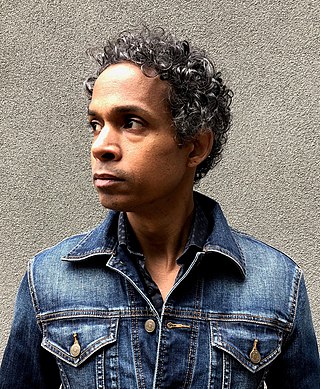Related Research Articles
Carol Ann Shields, was an American-born Canadian novelist and short story writer. She is best known for her 1993 novel The Stone Diaries, which won the U.S. Pulitzer Prize for Fiction as well as the Governor General's Award in Canada.

The Giller Prize, is a literary award given to a Canadian author of a novel or short story collection published in English the previous year, after an annual juried competition between publishers who submit entries. The prize was established in 1994 by Toronto businessman Jack Rabinovitch in honour of his late wife Doris Giller, a former literary editor at the Toronto Star, and is awarded in November of each year along with a cash reward with the winner being presented by the previous year's winning author.
The Atwood Gibson Writers' Trust Fiction Prize, formerly known as the Rogers Writers' Trust Fiction Prize, is a Canadian literary award presented by the Writers' Trust of Canada after an annual juried competition of works submitted by publishers. Alongside the Governor General's Award for English-language fiction and the Giller Prize, it is considered one of the three main awards for Canadian fiction in English. Its eligibility criteria allow for it to garland collections of short stories as well as novels; works that were originally written and published in French are also eligible for the award when they appear in English translation.

Lawrence Hill is a Canadian novelist, essayist, and memoirist. He is known for his 2007 novel The Book of Negroes, inspired by the Black Loyalists given freedom and resettled in Nova Scotia by the British after the American Revolutionary War, and his 2001 memoir Black Berry, Sweet Juice: On Being Black and White in Canada. The Book of Negroes was adapted for a TV mini-series produced in 2015. He was selected in 2013 for the Massey Lectures: he drew from his non-fiction book Blood: The Stuff of Life, published that year. His ten books include other non-fiction and fictional works, and some have been translated into other languages and published in numerous other countries.

Eden Victoria Lena Robinson is an Indigenous Canadian author. She is a member of the Haisla and Heiltsuk First Nations.
The Hilary Weston Writers' Trust Prize for Nonfiction is a Canadian literary award, presented annually by the Writers' Trust of Canada to the best work of non-fiction by a Canadian writer.
Susan Swan is a Canadian author, journalist, and professor. Susan Swan writes classic Canadian novels. Her fiction has been published in 20 countries and translated into 10 languages.
Zsuzsi Gartner is a Canadian author and journalist. She regularly writes for The Globe and Mail, the Vancouver Sun, Quill & Quire, Canadian Business, and Western Living.

Marina Endicott is a Canadian novelist and short story writer. Her novel, Good to a Fault, won the 2009 Commonwealth Writers Prize for Canada and the Caribbean and was a finalist for the Giller Prize. Her next, The Little Shadows, was long-listed for the Giller and short-listed for the Governor General's Literary Award. Close to Hugh, was long-listed for the Giller Prize and named one of CBC's Best Books of 2015. Her latest, The Difference, won the City of Edmonton Robert Kroetsch prize. It was published in the US by W.W. Norton as The Voyage of the Morning Light in June 2020.

Steven Galloway is a Canadian novelist and a former professor at the University of British Columbia. He is the author of the award-winning novel The Cellist of Sarajevo (2008).

Craig Davidson is a Canadian author of short stories and novels, who has published work under both his own name and the pen names Patrick Lestewka and Nick Cutter. His style has been compared to that of Chuck Palahniuk.

Madeleine Thien is a Canadian short story writer and novelist. The Oxford Handbook of Canadian Literature has considered her work as reflecting the increasingly trans-cultural nature of Canadian literature, exploring art, expression and politics inside Cambodia and China, as well as within diasporic East Asian communities. Thien's critically acclaimed novel, Do Not Say We Have Nothing, won the 2016 Governor General's Award for English-language fiction, the Scotiabank Giller Prize, and the Edward Stanford Travel Writing Awards for Fiction. It was shortlisted for the 2016 Man Booker Prize, the 2017 Baileys Women's Prize for Fiction, and the 2017 Rathbones Folio Prize. Her books have been translated into more than 25 languages.

David John Chariandy is a Canadian writer and academic, presently working as a professor of English literature at Simon Fraser University. His 2017 novel Brother won the Rogers Writers' Trust Fiction Prize, Ethel Wilson Fiction Prize, and Toronto Book Award.

Kathleen Winter is an English-Canadian short story writer and novelist.

John Vaillant is an American-Canadian writer and journalist whose work has appeared in The New Yorker, The Atlantic, National Geographic, and Outside. He has written both non-fiction and fiction books.

Esi Edugyan is a Canadian novelist. She has twice won the Giller Prize, for her novels Half-Blood Blues (2011) and Washington Black (2018).
Alix Hawley is a Canadian novelist and short-story writer. Her novel, All True Not a Lie In It, won the amazon.ca First Novel Award in 2015.
Ashley Little is a Canadian author of both adult and young adult literature.
Mona Awad is a Canadian novelist and short-story writer known for works of darkly comic fiction.

Do Not Say We Have Nothing is a novel by Madeleine Thien published in 2016 in Canada. It follows a 10-year-old girl and her mother who invite a Chinese refugee into their home. Critically acclaimed, in 2016 the author was awarded both the Scotiabank Giller Prize and the Governor General's Award for this novel. It was short-listed for the Man Booker Prize as well as the Women's Prize for Fiction.
References
- 1 2 3 4 5 6 Wunker, Erin (April 15, 2014). "Annabel Lyon". The Canadian Encyclopedia . Archived from the original on 2022-12-01. Retrieved 2023-05-20.
- ↑ Lederman, Marsha (2009-10-21). "Annabel Lyon: CanLit's newest golden girl". The Globe and Mail . Archived from the original on 2009-11-23. Retrieved 2023-05-20.
- 1 2 Farquharson, Vanessa. "Familiar names missing from Giller Prize list". Regina Leader-Post , October 7, 2009.
- 1 2 Adrian Chamberlain, "Bookstore clerk's first offering vies with Alice Munro for top prize". Victoria Times-Colonist , October 15, 2009.
- ↑ "Annabel Lyon wins Writer's Trust award". The Globe and Mail . 2009-11-25. Archived from the original on 2009-11-28. Retrieved 2023-05-21.
- 1 2 Lederman, Marsha (2009-10-21). "Annabel Lyon: CanLit's newest golden girl". The Globe and Mail . Archived from the original on 2009-11-23. Retrieved 2023-05-21.
- ↑ "Annabel Lyon author biography". BookBrowse. Archived from the original on 2019-04-28. Retrieved 2023-05-21.
- ↑ "The Sweet Girl: Aristotle's other, forgotten child". The Globe and Mail . 2012-09-21. Archived from the original on 2021-01-26. Retrieved 2023-05-21.
- 1 2 Dundas, Deborah (2020-09-08). "Thomas King, Emma Donoghue make the 2020 Giller longlist in a year marked by firsts". Toronto Star . Archived from the original on 2022-11-03. Retrieved 2023-05-20.
- ↑ "Lyon, Richardson among authors on Giller long list". Prince George Citizen , September 5, 2012.
- ↑ Porter, Ryan (2021-04-08). "Eight shortlists announced for BC and Yukon Book Prizes". Quill and Quire . Archived from the original on 2022-08-08. Retrieved 2023-04-22.
- ↑ Takeuchi, Craig (2021-04-08). "B.C. and Yukon Book Prize shortlists announced for 2021". The Georgia Straight . Archived from the original on 2021-04-08. Retrieved 2023-04-22.